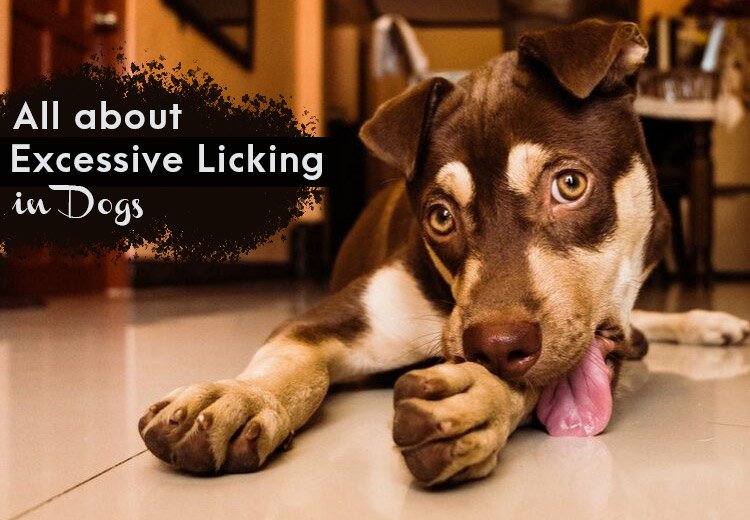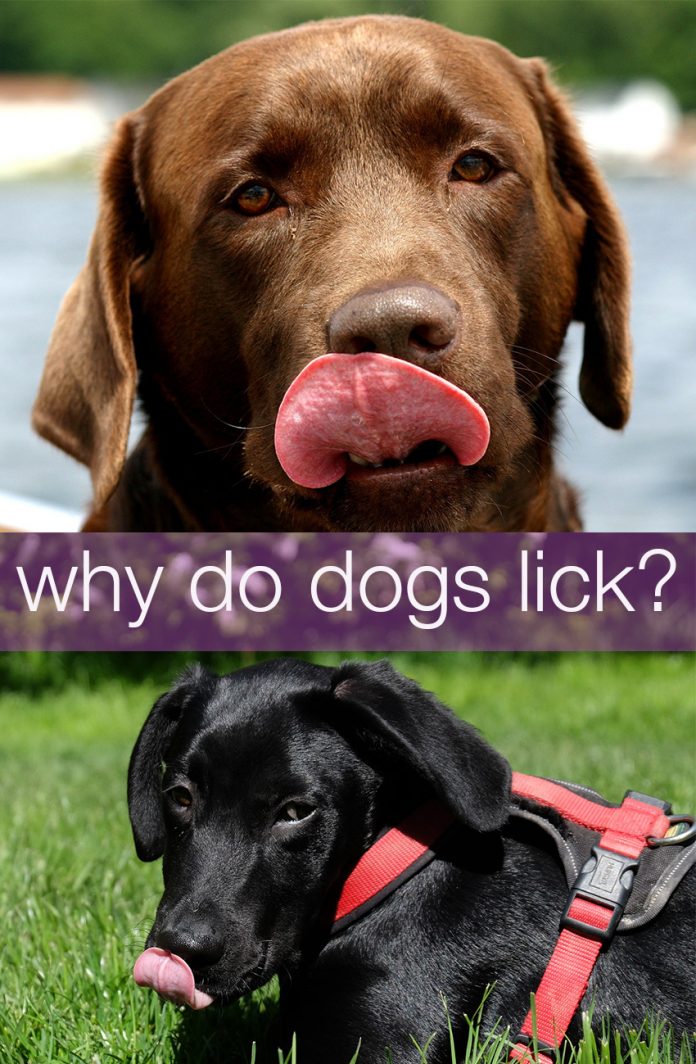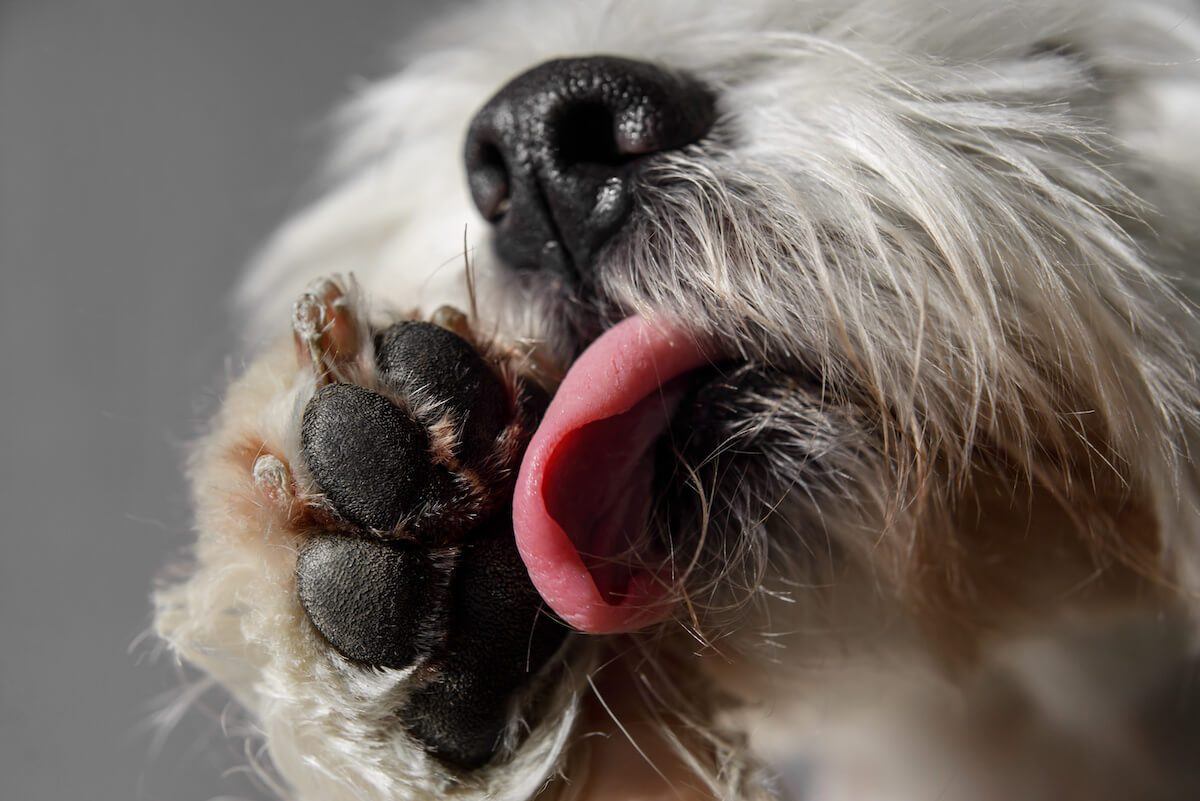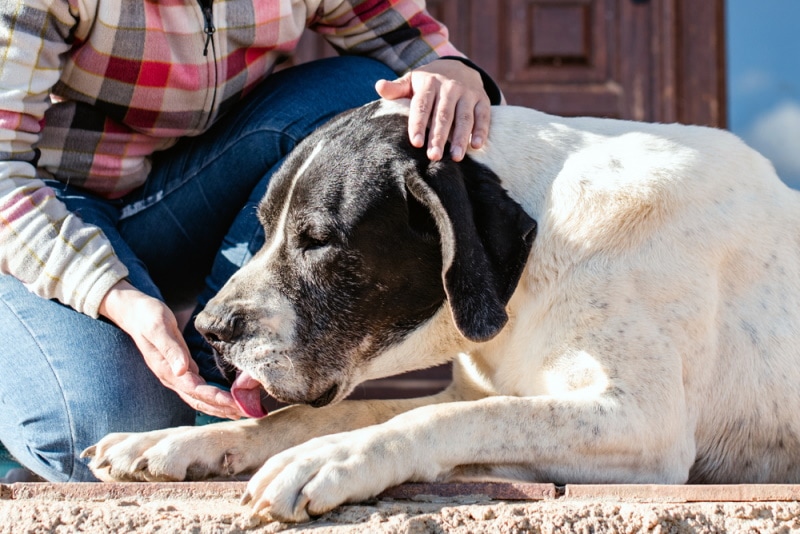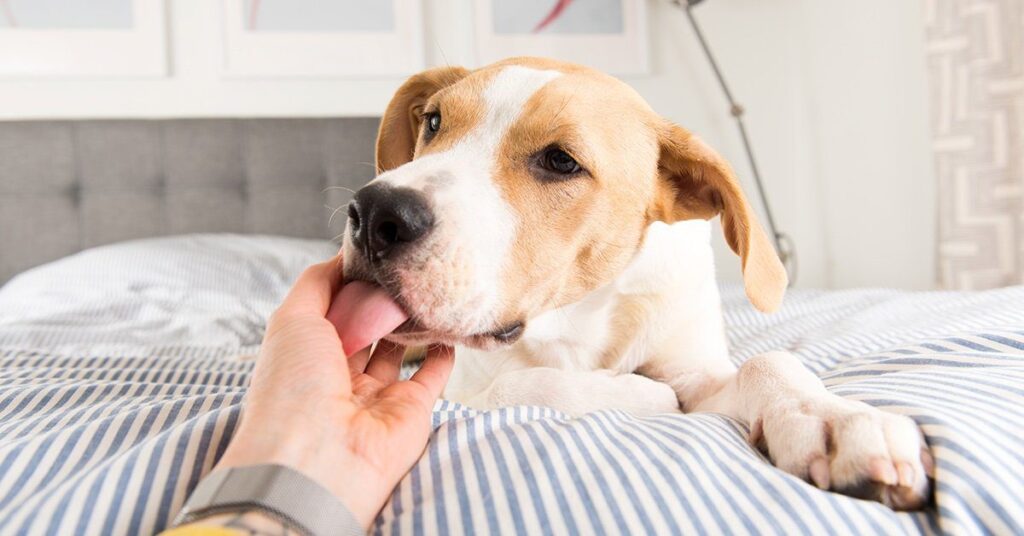What Makes A Dog Lick Everything

The golden retriever, aptly named Gus, patrols the living room like a furry, four-legged vacuum cleaner. A stray crumb? Gone. A slightly damp spot on the rug? Addressed with gusto. Even the air seems to quiver with the anticipation of his next lick-able conquest, leaving his bewildered owners to wonder, "Why does he lick *everything*?"
That's the question that plagues many dog owners. This seemingly indiscriminate behavior, though often endearing, can also be perplexing and sometimes even concerning. So, what's the science behind the slobber? This article delves into the multifaceted world of canine licking, exploring the common reasons why our beloved companions find such joy (or perhaps necessity) in coating the world around them with their tongues.
The Canine Compulsion: A Deep Dive
Licking, it turns out, is a deeply ingrained behavior in dogs. It starts from the moment they're born. A mother dog meticulously grooms her puppies by licking them, providing warmth, stimulation, and a crucial early bond.
This early association establishes licking as a fundamental part of a dog's communication and interaction with the world. It's not just about taste; it's about connection, exploration, and even self-soothing.
Affection and Bonding
One of the most common reasons dogs lick is to show affection. Think of it as their equivalent of a human hug or kiss. They're trying to bond with you, express their love, and strengthen the social connection.
A dog might lick your face, hands, or even your feet to demonstrate their adoration. This behavior stems from their pack animal instincts, where grooming within the pack reinforces social bonds and hierarchy.
Taste and Exploration
Let's face it, the world is full of interesting smells and, to a dog, equally interesting tastes. Their sense of smell is vastly superior to ours, and their tongues are equipped with taste buds that can detect subtle flavors we might miss entirely.
A dog might lick the floor, furniture, or even the air to explore its environment and gather information. They're essentially trying to understand the world through their tongues, analyzing lingering scents and detecting hidden tastes.
Communication and Attention-Seeking
Dogs are masters of communication, even if they don't speak our language. Licking can be a way for them to get our attention, especially if they've learned that it elicits a response.
If you react, even negatively, to your dog's licking, they'll likely repeat the behavior in the future. They've learned that licking equals attention, regardless of whether it's positive or negative.
Anxiety and Stress
Sometimes, excessive licking can be a sign of anxiety or stress. Just like humans might bite their nails or fidget when feeling anxious, dogs might lick themselves, objects, or even people as a way to cope with their emotions.
This is often referred to as a displacement behavior. The licking provides a distraction from the underlying anxiety, offering a temporary sense of calm.
According to the American Kennel Club (AKC), if your dog suddenly starts licking excessively, it's important to consider potential stressors in their environment, such as loud noises, changes in routine, or the presence of strangers.
Medical Reasons
In some cases, excessive licking can be a sign of an underlying medical condition. Allergies, skin irritations, gastrointestinal issues, and even neurological problems can all manifest as excessive licking.
For example, a dog with a skin allergy might lick and scratch at the affected area in an attempt to relieve the itch. Similarly, a dog with gastrointestinal discomfort might lick surfaces in an attempt to soothe their upset stomach.
If you're concerned about your dog's licking habits, it's always best to consult with a veterinarian to rule out any potential medical causes. They can perform a thorough examination and run diagnostic tests to determine the underlying cause of the behavior.
Managing the Licking: Finding a Balance
While some licking is perfectly normal and even endearing, excessive licking can be problematic. It can be annoying for owners, potentially harmful to the dog's skin, and even a sign of a more serious underlying issue.
So, how do you manage your dog's licking habits? The key is to identify the underlying cause and address it accordingly.
Addressing Affection and Attention-Seeking
If your dog is licking you for affection or attention, try redirecting their behavior. Instead of scolding them, offer them a toy or engage them in a game.
You can also teach them an alternative behavior, such as sitting or staying, and reward them with praise and treats. This way, they'll learn that there are other ways to get your attention besides licking.
Managing Anxiety and Stress
If your dog is licking due to anxiety or stress, try to identify and eliminate the stressors in their environment. Provide them with a safe and comfortable space, such as a crate or bed, where they can retreat when feeling overwhelmed.
You can also try using calming aids, such as pheromone diffusers or calming chews, to help reduce their anxiety. In severe cases, your veterinarian might recommend medication to help manage their anxiety.
"Licking is a complex behavior with a variety of potential causes," says Dr. Emily Weiss, VP of Research & Development at the ASPCA. "Understanding the underlying reasons why your dog is licking is crucial for addressing the behavior effectively."
Seeking Veterinary Advice
If you suspect that your dog's licking is due to a medical condition, it's important to consult with a veterinarian. They can perform a thorough examination and run diagnostic tests to determine the underlying cause of the behavior.
Treatment options will vary depending on the underlying condition. For example, allergies might be treated with antihistamines or special diets, while gastrointestinal issues might require medication or dietary changes.
The Sweet and Salty Truth
Ultimately, understanding why your dog licks everything requires patience, observation, and a willingness to delve into their world. It's a reminder that our canine companions communicate in ways that are often subtle and nuanced.
While the endless licking might sometimes drive you to distraction, try to remember that it's often a sign of affection, exploration, or even a plea for help. By paying attention to your dog's licking habits and addressing any underlying issues, you can strengthen your bond and ensure their well-being.
So, the next time Gus, or any other dog, comes in for a lick, consider the message behind the moisture. Is it love? Curiosity? Or something more? The answer, as always, lies in understanding the complex and wonderful world of our canine companions.



